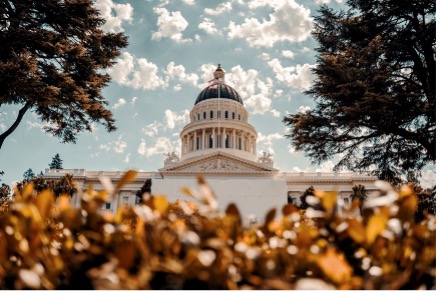2025 Legislative Session Wrap-Up
The 2025 Legislative Session has officially concluded, and the Governor has now acted on all bills passed by the Legislature. This year, more than 900 bills reached the Governor’s desk, including several key measures CASA closely tracked on behalf of our members.
We have compiled a comprehensive list of bills of interest to CASA members, including those that were signed or vetoed by the Governor.
As shared earlier this month, CASA’s sponsored PFAS categorical ban bill, SB 682 (Allen) was unfortunately vetoed. In addition, SB 317 (Hurtado), which sought to codify California’s Wastewater Surveillance Program, was also vetoed. The Governor signed SB 499 (Stern), which includes cleanup language to (SB 937 2024) related to the collection of impact fees.
We extend our sincere thanks to all CASA members for your continued engagement and support of our advocacy efforts throughout the year. Looking ahead, our annual State Legislative Committee planning meeting will be held on December 5.
Changes to the Brown Act in 2026 – SB 707
 In the final days of the legislative session, Governor Newsom signed SB 707 (Durazo), a sweeping update to the Brown Act that will significantly impact how local agencies conduct public meetings. The new law introduces mandatory hybrid meeting requirements, enhanced public outreach standards, and new translation obligations for agencies serving diverse communities. With implementation deadlines beginning January 1, 2026, agencies will need to start preparing now. Learn more about what’s changing, when the new rules take effect, and where you can get additional guidance.
In the final days of the legislative session, Governor Newsom signed SB 707 (Durazo), a sweeping update to the Brown Act that will significantly impact how local agencies conduct public meetings. The new law introduces mandatory hybrid meeting requirements, enhanced public outreach standards, and new translation obligations for agencies serving diverse communities. With implementation deadlines beginning January 1, 2026, agencies will need to start preparing now. Learn more about what’s changing, when the new rules take effect, and where you can get additional guidance.
In the final days of the session, Governor Newsom signed into law SB 707 (Durazo), which makes major revisions to the Brown Act. All special districts and other Brown Act-observing agencies will need to become familiar with the new law before January 1, 2026. Additionally, some cities, counties, and special districts that fall into the “eligible legislative bodies” will have to follow additional requirements generally starting July 1, 2026. Unlike earlier versions of the Brown Act, the new law now requires eligible legislative bodies to offer hybrid meetings starting July 1, 2026. This means the public must be able to participate through a two-way phone or video platform, unless the technology is not available at the meeting location or the meeting qualifies for an exemption. SB 707 also makes changes to the outreach that agencies need to perform to the public and it requires translation of the participation instructions and agendas if 20% of the population served speaks a particular language and if they speak English less than “very well”. CSDA is hosting a webinar detailing all of the changes on December 1. We will be discussing this bill, and others during CASA’s Fall Attorneys Meeting on November 14. If you would like to attend the CASA Attorneys Meeting, you can register here. If you have any questions or would like more information, please reach out to Spencer Saks.




 @CASA_CleanWater
@CASA_CleanWater